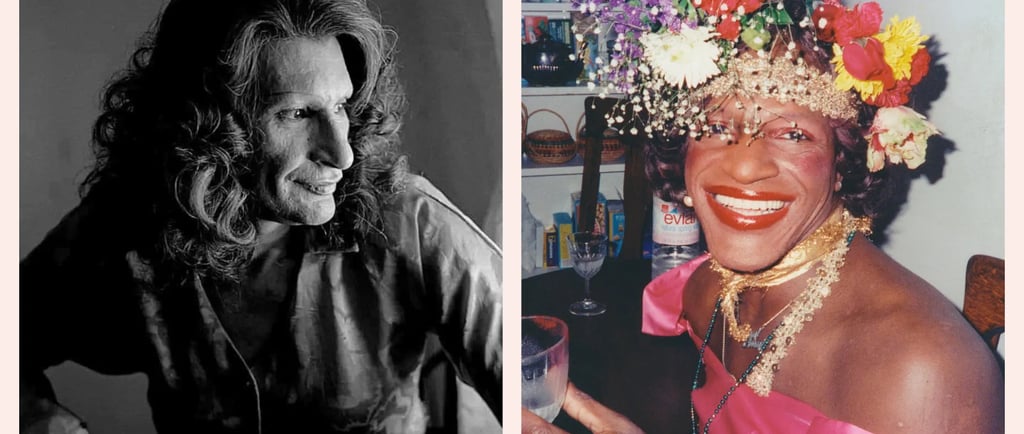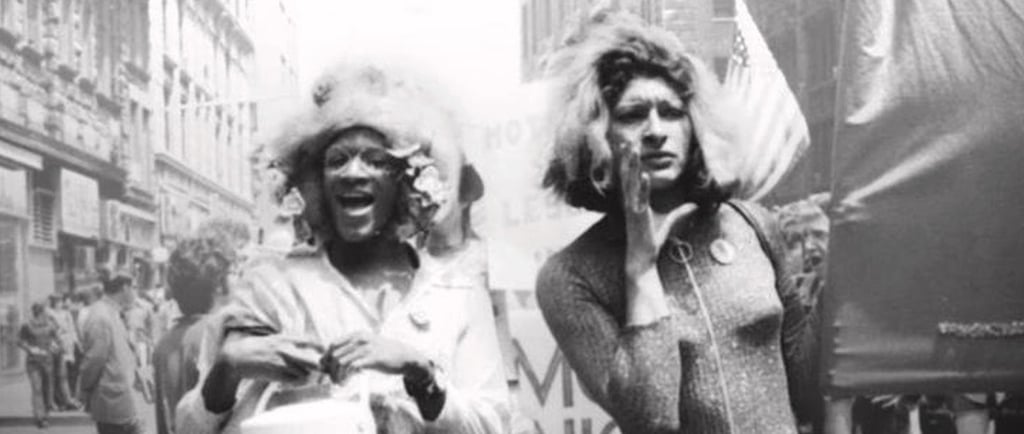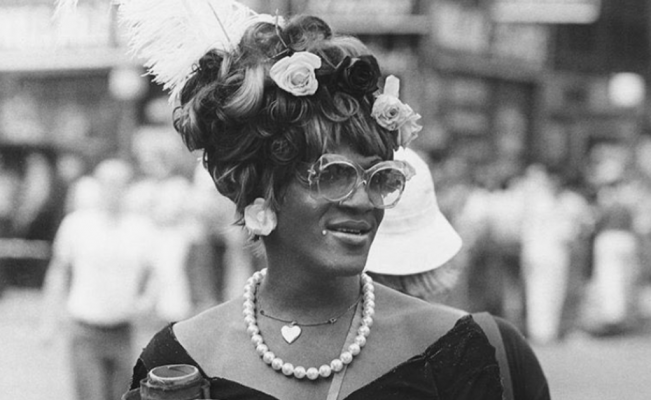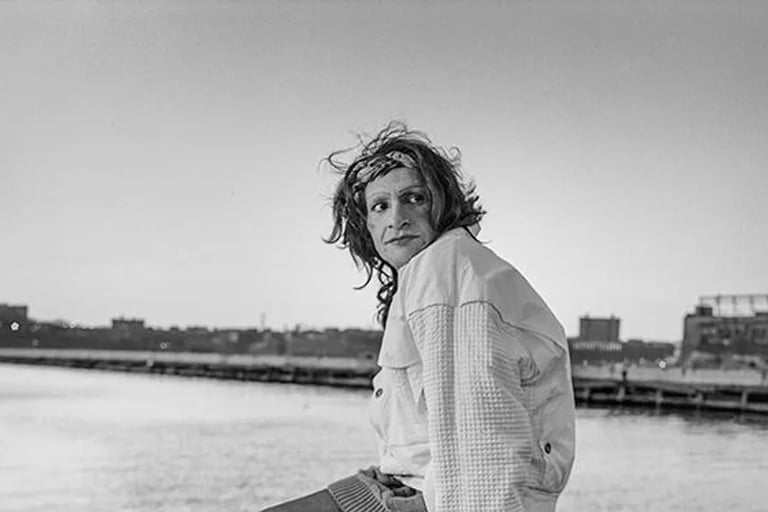The Unseen Voices of the Stonewall Uprising: Marsha P. Johnson and Sylvia Rivera
This post sheds light on the untold story of two revolutionary trans women of color, Marsha P. Johnson and Sylvia Rivera, whose courage helped ignite the Stonewall Uprising. Often erased from the mainstream narrative, their struggle was not just for LGBTQ+ rights, but for survival, dignity, and truth. This is a raw, unfiltered tribute to the voices that refused to stay silent — and the fight that still continues. Not all heroes wear capes. Some wear scars.
GRIM REALITYDISTURBING CASESSINS OF THE FLESHCOLD CASENEWS
6/28/20255 min read


They were not saints in the way history likes to write them. Marsha P. Johnson and Sylvia Rivera bled for a movement that never bled for them. They were called “transgender pioneers,” but that title came too late—after they were already gone, chewed up and forgotten by the very liberation they helped ignite.
They didn’t ask to be leaders. They were just trying to stay alive in a system built to erase them. They survived homelessness, police brutality, addiction, and suicide attempts—not for glory, but for each other. And when the glitter settled after Stonewall, it was white gay men in suits who claimed the revolution, while Marsha and Sylvia were pushed back into the alley they came from.
This is not a celebration. This is a requiem.
Marsha P. Johnson: The Smile That Hid the Storm
Marsha was born Malcolm Michaels Jr. in 1945 in Elizabeth, New Jersey. She was assigned male at birth, but by the time she was a teenager, she knew who she was. The world didn’t agree. After enduring childhood sexual abuse and religious shame, Marsha fled to New York with $15 and a bag of clothes.
She became a Black trans woman, a drag queen, and a sex worker, living mostly on the streets of Greenwich Village. She was poor. Often hungry. And diagnosed with schizophrenia—a label that often led police to mock her as “crazy” rather than human. But she smiled. She wore flowers like armor. She gave what little she had to others.
Marsha became known for her kindness, her joy, and her fierce presence at every protest. She co-founded STAR (Street Transvestite Action Revolutionaries) with Sylvia, creating one of the first shelters for homeless trans youth. She was there at Stonewall, throwing things, shouting, standing between cops and her community.
But her kindness was weaponized. The movement used her image, her energy, her visibility—then abandoned her.
In July 1992, Marsha's body was pulled from the Hudson River. Police ruled it a suicide within hours, despite a gaping wound on her head and multiple witness reports of harassment by local gangs. Her friends knew better. It was murder. Covered up. Forgotten. Until activists forced the NYPD to reopen the case years later.
Still, no justice. Just a river. Just silence.
Sylvia Rivera: Fire in Her Veins, Ash in Her Mouth
Born in 1951, Sylvia Rivera was abandoned early. Her mother died by suicide when Sylvia was just three. She was raised by her abusive grandmother in the Bronx, punished for being “too feminine.” By age 11, Sylvia was on the streets—working, surviving, fighting.
She found a home with drag queens, hustlers, and outcasts in the Village. But survival came at a cost. Sex work, heroin addiction, and mental breakdowns followed her. But she refused to disappear.
Sylvia wasn’t just present at Stonewall—she helped start the riot. But when mainstream LGBTQ organizations started forming, they erased her. She was too radical. Too trans. Too loud. Gay men in power pushed her out of Pride parades and political meetings. At one point, she attempted suicide by walking into the Hudson River.
She lived—but barely. She battled addiction for decades. She returned to activism in the '90s, but always from the margins. Her final years were spent fighting for the trans community while dying of liver cancer. She died in 2002, poor and exhausted. The movement mourned her with flowers. But not while she was alive. Only after.
The Revolution That Betrayed Them
Both women were queer icons, but only in hindsight. While alive, they were beat down by cops, ignored by politicians, and tokenized by the movement they helped build. They were not invited to the table—they built the damn table, then got pushed out of the room.
They fought for trans rights before anyone else dared speak those words. They housed youth no one else would. They gave their lives—literally—for queer liberation. And still, they died in poverty, trauma, and neglect.
Their stories are not neat. Not pretty. Not pride parade material. They are bloody, defiant, and tragic.
Embedded Keywords:
Marsha P. Johnson death mystery, Sylvia Rivera suicide attempt, Stonewall trans activists, STAR housing trans youth, LGBTQ history erasure, trans women pioneers, Black transgender icon, Sylvia Rivera drug addiction, queer homelessness history, trans liberation struggle
Marsha P. Johnson: Drowned by a World That Didn’t Want Her
Marsha’s death wasn’t just suspicious — it was a ritual act of forgetting.
On July 6, 1992, her body was found floating in the Hudson River, not far from the West Village piers where she often walked, laughed, wept, and tried to hold onto whatever was left of herself. She had been missing for days. Friends searched frantically. When her body surfaced, the police called it suicide within hours.
No investigation. No autopsy worth believing. Just a quiet filing of the case — as if she had written her own end. As if she wanted to vanish.
But Marsha was many things — a flower-wearing saint, a schizophrenic wanderer, a trans icon long before the word existed — but she was not suicidal. Her friends knew it. Activists like Victoria Cruz would later fight to reopen her case, collecting stories from people who saw her being harassed by homophobic gang members, and others who believed she was pushed off the Christopher Street Pier.
There was a massive wound on the back of her head. Police said it was “likely caused by the rocks in the river.”
That was the best they could offer her. A woman who fought for others every day of her life was left to rot in a river, with no accountability. Even today, her death remains “unresolved.” But we know what happened.
The world killed her. The system buried her. The movement forgot her.
Sylvia Rivera: Death by a Thousand Cuts
Sylvia lived longer than Marsha — but her death was slower, sadder, and just as forgotten.
By the time she hit her forties, Sylvia was broke, exhausted, and alienated from the very LGBTQ+ movement she helped create. After being pushed out of Pride parades, mocked for her activism, and deemed “too difficult” by mainstream organizations, Sylvia turned inward. She drifted in and out of homelessness, battled alcoholism, and tried — more than once — to kill herself.
“I gave them their rights,” she once said about the gay community. “And they just turned their backs on me.”
She re-emerged in the late ‘90s, more defiant than ever, founding the Sylvia Rivera Law Project, which still fights for trans rights today. But she was dying — not just of bitterness or loneliness, but liver cancer, worsened by decades of poverty, stress, and neglect.
Sylvia passed away on February 19, 2002, in New York’s St. Vincent’s Hospital. There were no parades, no national headlines, no mainstream tribute. She died as she lived — fighting, furious, and mostly forgotten by the world she tried to save.
They Didn't Just Die — They Were Erased
Neither woman got justice. Neither got closure. They were mourned by the same people who once ignored them, paraded by the same system that once discarded them. Their deaths weren’t accidents. They were consequences — of a society that lets the poor, the trans, the loud, and the inconvenient die in silence.
Marsha died in the water. Sylvia died in a hospital. But long before their bodies stopped breathing, the world had already tried to kill them — with apathy, poverty, exclusion, and disrespect.
Final Words
If we only remember Marsha and Sylvia during Pride Month, then we haven’t remembered them at all. Their deaths were not just endings—they were warnings. About what happens when you let systems decide who matters. About what happens when we silence the angry, the poor, the trans, and the inconvenient.
They were saints. But not of the church. Of the street. Of the struggle. Of the unspeakable.




R.I.P


Despair
A dark exploration of societal decay and despair.
Void
+1234567890
© 2025. All rights reserved.
Any comments, business inquiries, ideas, or stories, let us know
